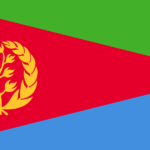Fees for registering Suriname trademarks
Service Process
Trademark registration time
Suriname is located in the northern part of South America, bordering the Atlantic Ocean to the north and Brazil to the south. The current trademark regulations are mainly based on Royal Act No. 57, promulgated on August 19, 1912, and revised on August 31, 1984. The Suriname Intellectual Property Office is responsible for managing trademark affairs and the official language is Dutch. Trademark registration is not mandatory, but in order to protect the trademark or renew it, it must be registered in accordance with the law. Suriname adopts the principle of "prior use" for trademark registration, and unregistered trademarks can obtain protection through prior use.
Suriname is a signatory to international intellectual property treaties such as the Paris Convention, the Nice Agreement, and the WIPO Convention, and trademark registration can only be processed through "single country registration".
Trademark Registration Process
At present, Suriname officially adopts the Nice Classification 11th edition of product descriptions and accepts applications for multiple categories in one form; We do not accept service trademark applications. The elements that can be registered as trademarks in Suriname include: text, name, graphics, three-dimensional identification, color combinations, etc. Non traditional trademarks such as sound and smell are not accepted for registration.
If the applicant does not reside in Suriname, they must entrust a local specialized agent to handle it. The basic materials required for trademark application are:
1. Trademark design;
2. Category and product items;
3. Name and address of the applicant;
4. Power of attorney;
5.If priority is declared, proof of priority must be provided.
The main process for applying for registration of a Suriname trademark is: application acceptance examination approval announcement issuance. The application will be accepted approximately one week after submission. After acceptance, substantive examination of the trademark will be conducted, including examination of the distinctiveness of the trademark, whether it violates the prohibition and prohibition clauses, and whether it conflicts with the prior trademark. If the examination is passed, it will be announced; If the review fails, a rejection notice will be issued and the applicant will be required to respond within the time limit specified in the rejection notice. The objection period is 9 months from the announcement date, and any interested party or prior right holder may raise objections. The main reasons for raising objections are:
1. Conflict with prior trademarks, such as owning a prior registered trademark;
2. The trademark lacks distinctiveness;
3. The trademark has adverse effects;
4. Malicious registration;
5. Conflict with other prior rights, such as trade name rights, design rights, copyrights, personal names, etc.
If there are no objections or objections are not valid during the announcement period, registration can be approved and a registration certificate can be issued after the objection period ends. In a smooth situation, trademark registration in Suriname takes about 3 years; If things don't go smoothly and there are rejections or objections along the way, the time will be greatly extended.
Trademark registration materials
The Suriname trademark is valid for 10 years after registration, starting from the date of registration; Renewal can be processed within 6 months before the expiration date, with a grace period of 6 months; The renewal is valid for 10 years.
Unlike other countries, Suriname does not have regulations on the duration of continuous non use of revocation.
Start Your Trademark Business
Start Registration

do not understand? Contact us

do not understand? Contact us

do not understand? Contact us

do not understand? Contact us


 Suriname
Suriname